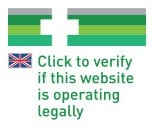Almost everybody wishes to lose weight at some time or another, whether it be for the holidays or a special occasion, but what is the best and easiest way to do it?
A quick internet search shows a variety of methods from joining a slimming club, dieting or going to the gym. All of these methods take time and dedication in order to achieve the desired results, and here lies the rub.
In a world of fast foods, fast cars and, on the whole, a faster way of living why shouldn’t we have fast weight loss too? Internet sites promise, in some cases, that you can lose on average 21lbs per month using diet pills – but which ones to use – there are so many it doesn’t matter right? After all they have been tested and are safe to use – wrong!
As highlighted in a recent episode of BBC’s Casualty, a lady in a care home was freely dispensing diet pills to her friends as part of a beauty regime. She was under the impression that they were from a ‘good’ company and ‘guaranteed’ to be safe. It became apparent that the pills contained Sibutramine, which was suspended from the UK market in 2010, amid fears it increases the risk of heart attacks and strokes and was, as it turns out, a counterfeit medicine.
If you think this can only happen in TV land to unsuspecting little old ladies then think again! Even musical icons can allegedly become a casualty of the counterfeit pill problem sweeping the global market.
The autopsy report, for a particular musical icon, allegedly concluded that he died from a lethal dose of a powerful opioid called fentanyl which is a drug that can be up to 100 times more powerful than morphine. From investigations carried out it is believed that the pop icon didn’t know what he was taking as the container was marked with a label that’s found on a generic painkiller that contains acetaminophen and hydrocodone — the ingredients of many commonly prescribed painkillers, including Vicodin.
Counterfeiters rely on the fact that people want a cheap easy fix and don’t want to involve their GP for fear of embarrassment. They set up a fake website offering us this magic elixir at heavily discounted prices.
In order to stay safe and ensure that the medicine we wish to purchase is genuine it is imperative that we follow a few simple steps:
- Check that the online pharmacy is genuine. Does it display this logo link? The EU common logo must be displayed on every web page that offers to sell human medicines to the public.
- Check the ingredients of products that claim to be ‘herbal’ or ‘all-natural’ they can actually contain chemical ingredients. Many contain Sibutramine – a medicine which was withdrawn from sale due to serious side effects including strokes and heart attacks, as mentioned above.
- Are the prices ‘’too good to be true’’? If so – they probably are.
If, after doing these checks, you should come across what you suspect to be a ‘fake’ website – report it via the MHRA website Medicines and Healthcare products Regulatory Agency. The MHRA, the UK licencing body for medicines and medical devices, are currently running a fake meds campaign to combat the illegal trade in fake medicines.
Think! Is saving money by buying counterfeit diet pills, as dramatized in the programme Casualty, worth the cost of losing a life?


